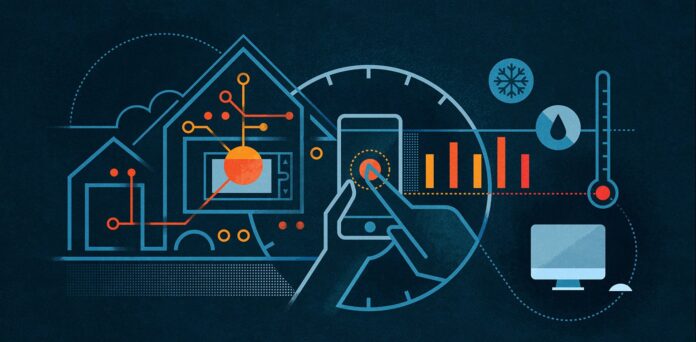Smart home technology has come a long way, transforming our daily lives in ways we couldn’t have imagined a few decades ago. From energy efficiency to enhanced security, these innovations are driving modern living to new heights. In this blog post, we’ll explore the fascinating evolution of smart home solutions and their impact on today’s homeowners and tech enthusiasts alike.
Introduction to Smart Home Technology
Smart home technology refers to devices and systems that can be controlled remotely and automate various household functions. Imagine adjusting your thermostat from your office or receiving alerts about unusual activity around your home while you’re on vacation. These conveniences are no longer the stuff of science fiction; they’re part of our everyday reality.
In this post, we’ll cover the history of these innovations, the latest advancements, and what the future holds. Along the way, you’ll learn how to integrate smart home technology into your own living space.
The Beginnings of Smart Home Devices
The concept of a “smart home” dates back to the early 20th century. Early innovations were rudimentary, often involving simple mechanisms like timers and remote controls. For instance, the first automatic garage door opener was introduced in the 1920s, allowing homeowners a taste of convenience.
In the 1980s and 1990s, advancements in computing and the internet paved the way for more sophisticated smart home devices. Home security systems began to incorporate video surveillance, and programmable thermostats made their debut, setting the stage for the smart homes we know today.
Latest Innovations in Smart Home Technology
Today’s smart home technology is a far cry from its humble beginnings. Artificial Intelligence (AI) and machine learning are now integral components, enabling devices to learn user preferences and adapt accordingly. Voice-activated assistants like Amazon’s Alexa and Google Home make it easier than ever to control multiple devices with simple voice commands.
Energy efficiency is another area where smart home technology excels. Smart thermostats and lighting systems can significantly reduce energy consumption by adjusting settings based on occupancy and time of day. Security enhancements, such as smart locks and cameras with facial recognition, provide peace of mind and greater control over home safety.
Benefits of Smart Home Devices
Incorporating smart home solutions into your daily life offers numerous benefits. First and foremost is convenience. Imagine waking up to a home that has already adjusted the temperature, brewed your coffee, and started playing your favorite morning news podcast. This kind of automation frees up time and makes daily routines more manageable.
Cost savings are another significant advantage. Smart thermostats, for example, can reduce heating and cooling costs by learning your schedule and adjusting temperatures accordingly. Similarly, smart lighting systems can cut down on electricity bills by ensuring lights are only on when needed.
Improved home security is yet another benefit. With real-time alerts and remote monitoring capabilities, you can keep an eye on your property no matter where you are. This added layer of security can deter potential intruders and give you peace of mind.
Challenges and Concerns
Despite the many benefits, smart home technology is not without its challenges. Privacy is a major concern. With devices constantly collecting data, questions arise about how this information is stored and used. Ensuring that your devices are secure and that your data is protected should be a top priority.
Interoperability between devices is another issue. Not all smart home devices are compatible with each other, which can complicate the integration process. It’s crucial to research and choose devices that can work together seamlessly.
Future Trends and Predictions
The future of smart home technology looks promising. Experts predict that AI will become even more integrated into our daily lives, offering more personalized experiences. Imagine a home that can anticipate your needs before you even voice them, adjusting settings and providing recommendations based on your habits and preferences.
Energy efficiency will continue to be a focus, with advancements in solar power and battery storage playing a significant role. Enhanced security features, such as biometric authentication, will also become more prevalent, providing even greater protection for homeowners.
Practical Advice for Homeowners
If you’re considering integrating smart home technology into your living space, there are a few things to keep in mind. First, consider compatibility. Ensure that the devices you choose can work together and be controlled from a single platform.
Next, think about installation. While many smart home devices are designed for easy setup, some may require professional installation. Budgeting is another important factor. While smart home technology can save you money in the long run, the initial investment can be significant.
Conclusion
Smart home technology has the potential to transform our lives, making daily routines more convenient, cost-effective, and secure. By understanding the evolution of these innovations and keeping an eye on future trends, you can make informed decisions about incorporating smart home solutions into your living space.
Whether you’re a tech enthusiast, a homeowner, or an innovator, there’s no denying the impact of smart home technology on modern living. Explore the possibilities and discover how these advancements can enhance your life.

